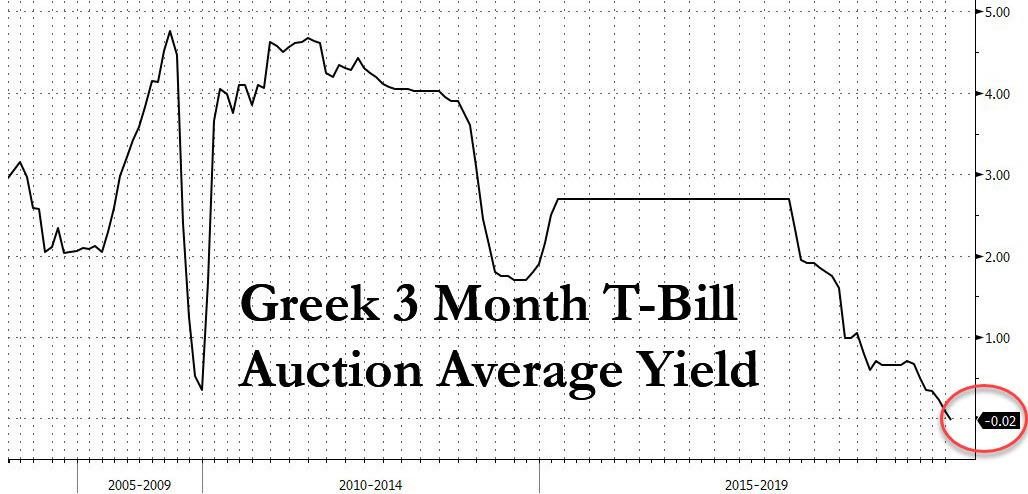For The First Time Ever, Greece Issues Negative Yielding Debt
As armies of fixed income strategists battle over whether US Treasuries are facing higher or lower yields, Greece has no such qualms and in a historic shift today, the former bond market pariah and Eurozone’s most indebted nation, joined the exclusive club of negative-yielding European nations when bond investors lined up to pay the nation that was at the heart of Europe’s sovereign debt crisis.
A sale of €487.5 million of 13-week bills on Wednesday drew Greece’s first-ever negative yield of minus 0.02% as investors now pay Athens for the privilege of lending it cash, as Bloomberg first reported. Greece joins the likes of Ireland, Italy and Spain – not to mention virtually all core Eurozone nations – which benefit from the ECB’s insane monetary policy and deepening fears of a global recession.
It’s been an unprecedented turnaround for twice bankrupt Eurozone member, whose bondholders suffered massive losses back in March 2012 when the country was forced to accept the biggest bond restructuring in history, bringing the Eurozone to the verge of collapse.
Just a few years and several trillions in bond purchases by the ECB later, the region is grappling with an altogether different problem – the spread of negative yields, which reduces borrowing costs for governments in a form of soft default, one which is crushing savers, pension funds and insurers, and which has prompted some of the most respected names in finance to shriek in terror as the cost of money in even Europe’s most insolvent nations is now negative.
Jon Day, a fixed-income portfolio manager at Newton Investment Management, said the move was “another symptom” of the “global grab for yield, especially in euro-denominated bonds,” pointing out that short-dated Greek bonds were previously one of the few government markets where a positive return was on offer.
